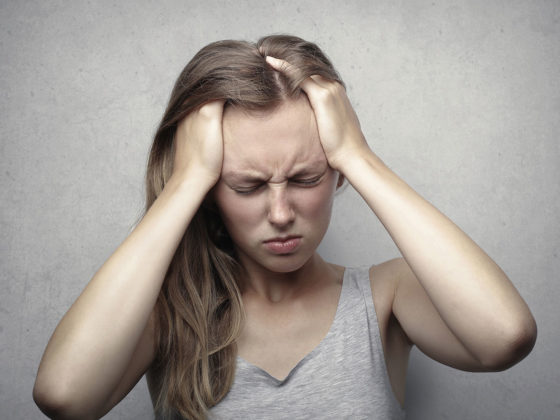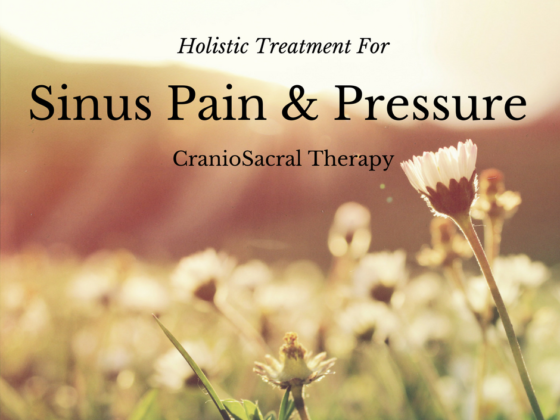 As an adolescent who was extremely involved in sports, a mom of 3 kids who all play sports, and a Physical Therapist; I have seen how concussions can adversely impact a person’s life. Some common symptoms of a concussion can include: headaches/migraines, difficulty concentrating, and sensitivity to sound and light. Individuals can also be effected emotionally because they can no longer handle the day to day activities of school, work, or a social life. Even things like using a cell phone and computer can become challenging. It can create a sense of hopelessness and frustration for the person suffering from Post-Concussion Syndrome.
As an adolescent who was extremely involved in sports, a mom of 3 kids who all play sports, and a Physical Therapist; I have seen how concussions can adversely impact a person’s life. Some common symptoms of a concussion can include: headaches/migraines, difficulty concentrating, and sensitivity to sound and light. Individuals can also be effected emotionally because they can no longer handle the day to day activities of school, work, or a social life. Even things like using a cell phone and computer can become challenging. It can create a sense of hopelessness and frustration for the person suffering from Post-Concussion Syndrome.
Lately we have heard a lot about concussions in the media surrounding the NFL. Why? Because now we are seeing the long-term effects on retired players of multiple concussions manifesting in early onset dementia, forgetfulness, constant headaches/migraines, depression, and emotional issues.
What is a concussion? It is a bruise to the brain resulting from a blow to the head or body causing the brain to literally “bounce” and or twist back & forth inside the skull. Concussions aren’t limited to contact sports; they can also happen from falling or sustaining a whiplash injury. Loss of consciousness is not a pre-requisite for a concussion. A concussion is classified as a mild traumatic brain injury (MTBI) because brain tissue is damaged.
Some very common symptoms of a concussion can include: difficulty concentrating, changes in vision, headaches/migraines, “foggy-brain”, nausea, memory changes, and sensitivity to light and sound. The severity of symptoms can vary and is dependent on direction and force of blow to the head or body, along with history of previous concussions. The signs and symptoms experienced after a concussion are often referred to as Post-Concussion Syndrome. These symptoms are a result of inflammation and physical changes to the brain and surrounding tissue from impact. Symptoms of a concussion can show up immediately after injury or days to weeks later.
The most important thing to do if you suspect a concussion is immediately follow-up with your physician. They will tell you to REST! This means to REST your brain and includes not just adequate sleep, but also limited use of digital devices, and not returning immediately to a sport if you play one. It is very important to slowly integrate normal activity back into your routine.
Unfortunately, REST is about the only guidance that the mainstream medical community gives individuals that have suffered a concussion. Individuals can feel hard-pressed to find treatment options for post-concussion syndrome. For those suffering, this can create feelings of frustration and hopelessness.
CranioSacral Therapy (CST) is an amazing treatment that will enhance the healing of the brain and surrounding tissue. CST will also address any changes in alignment of skull bones resulting from impact.
Malalignment of skull bones can result in:
- Abnormal forces pulling on the meninges (protective layer covering brain and spinal cord)
- Pinching of cranial nerves causing headaches, pain, numbness and tingling, visual changes, weakness, and sympathetic dominance
- Pinching of veins and arteries exiting the brain
- Tinnitus (Ringing in Ears)
- Altered draining of the dural venous sinuses in the brain which collect Cerebrospinal fluid (CSF) and waste products from the blood. CSF nourishes the brain and spinal cord and aids in the removal of waste products.
The brain and skull are not the only areas of the body affected by a concussion. Your body also absorbs the force of impact from the blow. This creates soft tissue restrictions throughout the body causing pain, tightness, and muscle spasm. CST releases these restrictions in the soft tissue, corrects bony changes in the skull occurring from impact, addresses any restrictions in dural tissue, and improves the removal of waste products by improving your CranioSacral rhythm (production and reabsorption of CSF) resulting from injury.
Through the advanced palpation skills of a therapist, CranioSacral Therapy has the ability to address restrictions not only in the brain and skull, but throughout the entire body as a result of a concussion. As these restrictions are released, your body is able to relax, self-correct, and heal. CST creates an environment in the body that is optimal for healing, repair, and overall wellness.
CranioSacral Therapy treatment is a powerful adjunct to the rest required of a person who has suffered a concussion. I have had the privilege to witness CST give people their lives back after a concussion. Even if you are not experiencing symptoms after a concussion, consider receiving CST. Absence of symptoms does not mean absence of physical changes to the brain and body. For those who are suffering from Post-Concussion Syndrome, be encouraged there is help and hope!




